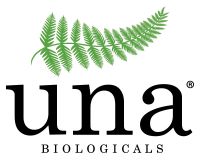
Herbs for Seasonal Allergies
By: Charlie Baron
While spring blooms are one of the best parts of spring, the allergies they bring are one of the worst. Runny nose, itchy eyes, and sneezing can make us feel crummy just when we want to play outside more.
Allergies are caused by our immune systems overreacting to pollen. Our bodies release antibodies to attack the “invader” pollens, and histamines release into our blood. Over-the-counter medications for allergies are typically antihistamines (which lower histamines in the body), decongestants (which relieve congestion and swelling), and steroid nasal sprays (which reduce inflammation but have negative side effects, especially with prolonged use).
If you’re looking for a more natural way to manage allergies, read on for more information about herbs for allergies. Herbs can help with allergy symptoms, but they are gentler and slower-acting than over-the-counter medications, so be patient. If you can start taking your allergy herbs before your allergy season gets into full swing, you may have more success knocking back your symptoms.
While some herbal remedies for allergies work similarly to medications, they also have other approaches that medications don’t. For example, there are immunomodulating herbs, which help regulate the immune response to be supportive instead of over-reactive. Herbs are also typically free of side effects. If someone does have an unwanted side effect from an herb, adding another herb to balance it will sometimes fix the issue. For example, if one herb is overly drying, leaving you with dried out mucus membranes or constipation, adding marshmallow or licorice root to a blend will help moisten it and offset the dryness. That being said, if an herb really doesn’t agree with you, stop taking it and try something else.
Finally, this post is a great starting place, but if you have questions or need a custom formula made for your specific needs, it’s always a good idea to see a clinical herbalist.
Stinging nettle
- Nettle is one of the most popular herbs for allergies, and for good reason. Not only is it a nutritional powerhouse, containing antioxidant compounds, minerals, and vitamin C, but it also has natural anti-inflammatory properties, and can block histamine receptors, as well as preventing immune cells from releasing chemicals that trigger allergy symptoms. You may get some benefit from dried nettles, but the most effective way to take nettles for allergies is to consume them fresh or freeze dried (which you can buy as capsules). If using them fresh, make sure to cook them to deactivate their stingers. Freeze dried nettle supplements will give you the anti-allergy benefits of nettles in a convenient pill.
Goldenrod
- Goldenrod often gets blamed for autumn allergies, but goldenrod isn’t actually the culprit. The allergy-triggering plant is usually ragweed, which has tiny pollen that gets dispersed by the wind, meaning it easily gets into our respiratory system. Goldenrod is insect-pollinated, so it has heavier pollens which aren’t flying around in the air, they’re being picked up by insects. While goldenrod’s showy flowers seem to give the impression that they cause allergies, goldenrod is actually a great allergy remedy. It is highly antioxidant, anti-inflammatory, and antihistamine. It is a great decongestant, meaning it will dry out mucus-y, dripping sinuses.
Mullein
- A traditional lung herb, mullein is soothing to the respiratory system, so it’s a good choice for people who have an allergic cough or other respiratory symptoms. Mullein contains tannins (also found in tea and red wine), which tighten up tissue. This can be helpful during allergy season to strengthen the barrier of your mucus membranes against the pollen-filled air. At the same time, mullein contains mucilage (a type of carbohydrate with a moistening effect), which contributes to its soothing action on irritated respiratory tracts. Mullein can make you cough, but sometimes that is helpful for moving stuck mucus and getting it out of your system. To round out mullein’s usefulness against allergies, it contains antioxidant and antiinflammatory bioflavonoids, which will help support an irritated and reactive immune system.
Lobelia
- Lobelia is a bronchodilator, meaning it opens up the airways and relaxes the muscles of the lungs, making breathing easier if your allergies include a lot of coughing and lung congestion. Lobelia can make people nauseous, so this is one to use under the supervision of a trained herbalist, or just a few drops of tincture at a time to test how your body responds to it. If you are making a tincture formula for allergies, you could include a bit of lobelia with other helpful herbs, but make sure that each dose of the tincture will stay below the level of lobelia that you can tolerate. Cigarette smokers especially need to be cautious with this plant. Because lobelia opens up the lungs, it can make your body absorb more tar and chemicals from cigarettes. Lobelia also contains an alkaloid that is similar to nicotine, and can make you feel sick if you smoke a cigarette. So smokers should probably skip this plant unless they are under the supervision of a professional herbalist.
Tulsi (Holy basil)
- Tulsi, also known as holy basil, has natural antihistamine effects and can prevent mast cell degranulation, which is one of the causes of acute allergic reactions. Tulsi has multiple anti-inflammatory mechanisms, plus amazing effects for the whole system, including stress management. It’s also one of the most delicious herbs in this list, so it could be blended in a tea with some local honey and other herbs for a tasty, allergy-relieving beverage.
Horseradish
- While horseradish (or wasabi, which is in the same family) is not a long-term solution to allergies, it is one of the herbs that will have immediate effects. Horseradish is spicy and moving, and can make your nose run, clearing out stuck congestion. The feeling of relief if you haven’t breathed through your nose in days could be worth the burn!
Reishi
- Reishi is a medicinal mushroom that helps modulate immune reactions, among its other supportive benefits. Reishi also has anti-inflammatory and antihistamine properties, like many of the other herbs in this list. I love to make an herbal coffee substitute from Dandy Blend (a powdered dandelion root product) and reishi mushroom powder. Not only is it a caffeine-free way to satisfy a craving for a warm, bitter, rich tasting drink, but it is also a great way to get some anti-allergenic compounds and support your liver’s clearance, as both dandelion and reishi benefit the liver as well.
Ginger
- Ginger is a natural anti-inflammatory, and is also spicy and moving, which can help clear congestion. One study found that 500mg of ginger taken daily for 6 weeks was as effective as loratadine (a common antihistamine medication) in improving allergic nasal symptoms and quality of life. Researchers found that ginger tended to have lighter side effects (such as burping), as opposed to drowsiness, fatigue, dizziness, and constipation that can occur from loratadine. Cook with ginger or add it to your tea throughout the spring season.
Vitamin C
- While vitamin C isn’t an herb, it’s a common vitamin found in many edible and medicinal plants, and it can be very supportive for combating allergy symptoms. To get a clear allergy-reducing effect, you can take high doses of vitamin C (around 3 grams, or 3,000mg, per day). But eating vitamin C in plants and herbs will also support your immune system and the tissue of your mucous membranes, which are usually affected during allergy season. Getting your vitamin C from berries will have an added benefit of the natural antihistamine quercetin. You could also eat citruses, which contain bioflavonoids that support immune function and tissue integrity. Eat your fruits and vegetables throughout the season to give your body the best chance of recovering!
Written By: Charlie Baron



